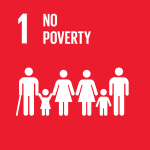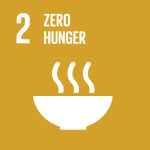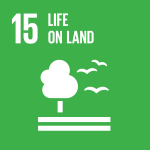
In Viet Nam, saltwater is increasingly flowing into freshwater canals and aquifers due to rising sea levels and stronger coastal storms. This intrusion is causing severe damage to agriculture. In 2020, 300,000 hectares of fruit trees were harmed across three provinces of the Mekong Delta: Ben Tre, Tra Vinh and Soc Trang. Ben Tre province alone lost 5,400 hectares of rice, with economic losses reaching US$27 million.
These problems are not new, but their effects are becoming more destructive. For many farmers, the changing environment has forced difficult decisions.
“I used to cultivate rice. However, as fresh water became scarcer, I switched to planting short-term crops: peanut, pumpkin, squash, bitter melon. I have been planting these for 15 years.” – Thach Tuot, local farmer
While these crops need less water than rice, they still require freshwater. During the rainy season, rain provides enough supply, but in the dry season, farmers must pump water from underground. This costs up to $200 a month in electricity—an expense many families struggle to afford.

Thach Tuot on his farm in Nhue Tu A, Tra Cu district, Tra Vinh, Viet Nam. Photo: VACC
Searching for innovative solutions
To address these challenges, farmers like Thach Tuot are turning to new approaches andworking with organizations such as the Viet Nam Association of Community Colleges (VACC), awhich has been experimenting with water solutions for years.
In 2017, VACC introduced rainwater storage tanks for domestic use. By 2023, with support from the UNDP-Adaptation Fund Climate Innovation Accelerator (AFCIA), the organization expanded its efforts to help farmers directly.
A family displays their domestic water tank. Photo: VACC
Three pilot water-capturing systems were set up across Ben Tre, Tra Vinh and Soc Trang. These systems use large ground tanks lined with plastic sheets to store rainwater or freshwater from rivers. Pipes then deliver water to crops through automatic irrigation. A full tank can reduce farmers’ dry-season water costs by up to 80 percent, making it possible for families living in poverty to save money and explore new sources of income.
“The water storage system can help me gather and store rainwater, as well as store freshwater from the river (for days without rain) to irrigate my field. With this, I can irrigate my peanut crops continuously for half a month.” – Thach Tuot
This innovative solution is also environmentally friendly. Instead of adding to plastic waste, they reuse discarded plastic from shrimp farms in the Mekong Delta to build tanks and pipes. This creates a circular economy, reducing pollution while supporting agriculture.
“We have set up 30 waterbeds for the storages of rainwater for the agricultural sector, for beans, peanuts or bitter melons. We reuse the plastics from the shrimp farm. We have a lot of residues like this thrown away to the environment from the shrimp farms, and now we use them to make the waterbed and pipes to store the water for agriculture.” – Tran Thi Ngoc Bich, known as Bica, deputy head of the Science Technology Department at VACC
The agricultural water storage and irrigation system on a rural farm. Photo: VACC
Reaching farmers in remote areas
The initiative began by inviting 30 people, including government representatives and local leaders, to discover the system and learn about sustainable water management practices. The next challenge was spreading the solution to individual farmers. Many live in remote areas, where roads are difficult to travel and some villages are only accessible by foot. Language barriers also exist, as not all farmers speak Vietnamese. Decisions within families must be made collectively, and sometimes women wait for men to return home before discussing opportunities.
To overcome these barriers, VACC is turning to a farmer-to-farmer model. Farmers often learn best from each other, sharing knowledge in traditional ways that have worked for generations. VACC is building on this practice, encouraging local farmers to become trainers themselves and exploring knowledge-sharing methods from neighbouring countries like Lao PDR and Cambodia.
“We train farmers how to make water bags, collect rainwater and connect the filtration at their home. Then they can use the system more effectively, controlling the land and water requirements for its growth. Consequently, they can teach other farmers how to use the system. Through this knowledge sharing the impact will last for years.” – Bica
Farmers showcase the new agricultural scale water capture system. Photo: VACC
Building resilience for the future
The farmer-to-farmer approach allows the project to expand in an organic and sustainable way. By relying on local knowledge and trust, the solution spreads naturally from one household to another. This model also makes it highly adaptable to other coastal and lowland farming communities in Viet Nam, where similar challenges are widespread.
The need for these solutions is becoming more urgent. As climate change evolves, it could reduce Viet Nam’s national income by up to 3.5 percent by 2050. Farmers, who are already among the most vulnerable, will face even greater pressures. Affordable, practical and sustainable innovations like these water storage systems are therefore essential to protect livelihoods.
Moreover, by transforming discarded plastic into a valuable resource, communities are not only lowering costs and reducing pollution—they are also creating a circular economy that builds long-term resilience. Most importantly, farmers themselves are leading the way.
Proud ambassadors of the water storage system. Photo: VACC
For Thach Tuot, the impact is already clear. With his new 60-cubic metre water storage bag and sprinkler irrigation system, he can manage his 12 hectares of peanuts with less effort and expense. Beyond saving time and money, his success makes him an ambassador for resilience, showing how Viet Nam’s farmers can adapt, thrive and inspire each other in the face of saltwater intrusion and climate change.
*
Supported by financial contributions from the Adaptation Fund and the European Union, the UNDP-AFCIA programme has awarded 44 micro and small grants to locally led organizations across 33 countries worldwide, accelerating their innovative solutions to build resilience in the most vulnerable communities.
UNDP-AFCIA is one of two featured programmes under the Adaptation Innovation Marketplace (AIM), a multi-stakeholder strategic platform that promotes scaled-up adaptation at the local level.





